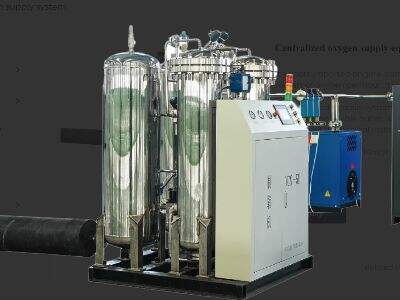בעת בחירת מרכז חמצן עבור יחידת בריאות ניידת, ישנם כמה שיקולים מרכזיים שכדאי לזכור.
מה należy לשקול לפני רכישת מכונת חמצן
מעבר לגודל, משקל וזמן חיי סוללה (לחלק מהמכונות יש סוללה שניתן לטעון ואחרות דורשות חיבור ישירות), יש לבחור מכונה חזקה ועמידה בתנאי תנועה קשים. היא לא אמורה להישבר בקלות במהלך השימוש במקומות שונים.
מה należy לשקול כשמקנימים קונה קונצנטרטור חמצן נייד
על מה לחפש בקונצנטרטור חמצן נייד הנה כמה תכונות שחשוב לשקול כשאתה בוחר קונצנטרטור קונצנטרטור חמצן נייד לנסיעה ל גורם משמעותי הוא קצב הזרימה של החמצן. ודא שהקונצנטרטור מסוגל לספק מספיק חמצן לחולה שלך.
גורם נוסף שיש לשקול הוא הרעש אותו יוצר הקונצנטרטור. עליך לבחור אחד שדומם, כדי שלא להפריע לחולים או לצוות רפואי בזמן השימוש.
בנוסף, חפש קונצנטרטור חמצן שפשוט לנользов, עם שלטים קליל שימוש. זה יעזור לצוות הרפואי לנהל את זה טוב יותר ולוודא שחולים מקבלים את החמצן שהם זקוקים לו.
שמירה על הקונצנטרטור שלך
טיפול נכון בקונצנטרטור החמצן שלך הוא הכרח אם אתה רוצה שהוא יעבוד בתפוקה גבוהה וישרוף חיים ארוכים ביחידת בריאות ניידת. שמירה עליו נקי וטיפול שוטף יעזור למנוע ממנו להתקלקל.
ודאו להניח את מכונת החמצן במקום בטוח כשאינכם משתמשים בה כדי למנוע נזקים, וכן להרחיק אותה ממקומות חמים או קרים במיוחד.
תוכנית טובה נוספת היא לוודא שטכני שירות מוסמך יבצע בדיקה ושירות מרכז חמצן מכונתי периодית. זה עוזר בזיהוי בעיות מוקדם ומניעת בעיות גדולות.
איך לבחור את הגודל והמשקל המתאימים לנשלאות קלה
כאשר בוחרים מכשיר קונצנרטור חמצן נייד לוואן רפואי נייד, לשקול את גודל ומשקל היחידה. בחר בגדולה קטנה וקלילה כך שיהיה קל להביא בכל זמן או מקום.
טיפ אחד הוא למצוא מכונה קלילה וקלילה לתנועה. זה אומר שהיא תופסת פחות מקום כשמ/apenene.
טיפ נוסף: בחרו מכונה עם גלגלים, או אפילו ידיות. זה יאפשר לצוות הרפואית להזיז אותה מבלי לגרום לפציעה.

